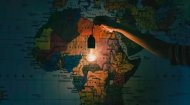|
|
|
History of Somalia |
History of Somalia |
History of Somalia | History of Somalia |
|
|

|
Following the war, Italy, which had aligned itself with Britain, France and Russia from 1915, increased its military presence in the area and in 1925, following an agreement made during the war as a reward for Italy having joined the Allies, an area south of the Jubba River known as Jubaland ~ a 33,000 square mile area flanking north-east Kenya ~ was ceded by the British into Italian control becoming part of the Italian protectorate. From there the Italians launched the Second Italo-Abyssinian War in 1935 in part in retaliation by Mussolini for Italy's earlier heavy defeat at the hands of Ethiopia in 1896. The League of Nations watched on helplessly as Ethiopia was swiftly crushed, occupied and annexed into the newly created Italian East Africa comprised of Ethiopia, Italian Somaliland and Italian Eritrea with King Victor Emmanuel III of Italy taking the title of "Emperor of Abyssinia". After the outbreak of World War II, the Italians conquered British Somaliland also absorbing it into Italian East Africa, however a year later the British recaptured British Somaliland and, following the war, Italian Somaliland came under British administration until 1949 after which it became the Trust Territory of Somalia administered by Italy but on a United Nations understanding and condition that it would become independent within ten years.
However in that year, armed and supported by Ethiopia clans from across Somalia brought down the governing regime and since that time the country has been in almost perpetual conflict with no real rule of any government. Even the United Nations withdrew, considering the area too unsafe to operate in. |
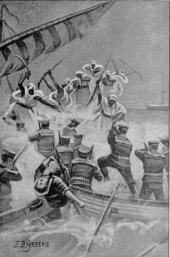 Around that time, in 1862, the French had started purchasing
land in the area to support its coaling station at Obock after
signing a deal with Afar leaders, and the Italians, under the
auspices of the Rubattino Shipping Company, purchased land in
modern day Eritrea from the local Sultan and established a base
at Assab.
Around that time, in 1862, the French had started purchasing
land in the area to support its coaling station at Obock after
signing a deal with Afar leaders, and the Italians, under the
auspices of the Rubattino Shipping Company, purchased land in
modern day Eritrea from the local Sultan and established a base
at Assab. 

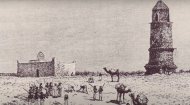

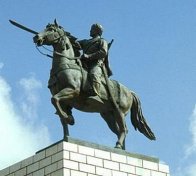 The first two decades of the twentieth
century saw ongoing conflict between Hassan, deemed the Mad Mullah
by the British, however the Dervish State aligned itself with the Ottoman and
German empire during the first World War and was defeated by the
British in 1920 after which Hassan and his followers fled to the
to Ogaden desert area in the hope of regrouping however Hassan
died later that year of influenza at the age of 64.
The first two decades of the twentieth
century saw ongoing conflict between Hassan, deemed the Mad Mullah
by the British, however the Dervish State aligned itself with the Ottoman and
German empire during the first World War and was defeated by the
British in 1920 after which Hassan and his followers fled to the
to Ogaden desert area in the hope of regrouping however Hassan
died later that year of influenza at the age of 64.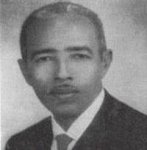 In 1960 the Trust Territory of Somalia duly became
independent of Italy and, together with British Somaliland,
united to become the Somali Democratic Republic with Mogadishu
as its capital and Aden Abdullah Osman Daar (left), a well known
nationalist, as its first president. Daar lost the subsequent 1967
presidential election to his former prime minister Abdirashid
Ali Shermarke however two years later Shermarke was assassinated
and the coup installed military commander Mohamed Siad Barre as president, and, although a
harsh socialist regime then ruled the country until it's collapse in 1991, many
improvements were made, particularly in the field of literacy.
In 1960 the Trust Territory of Somalia duly became
independent of Italy and, together with British Somaliland,
united to become the Somali Democratic Republic with Mogadishu
as its capital and Aden Abdullah Osman Daar (left), a well known
nationalist, as its first president. Daar lost the subsequent 1967
presidential election to his former prime minister Abdirashid
Ali Shermarke however two years later Shermarke was assassinated
and the coup installed military commander Mohamed Siad Barre as president, and, although a
harsh socialist regime then ruled the country until it's collapse in 1991, many
improvements were made, particularly in the field of literacy. 

